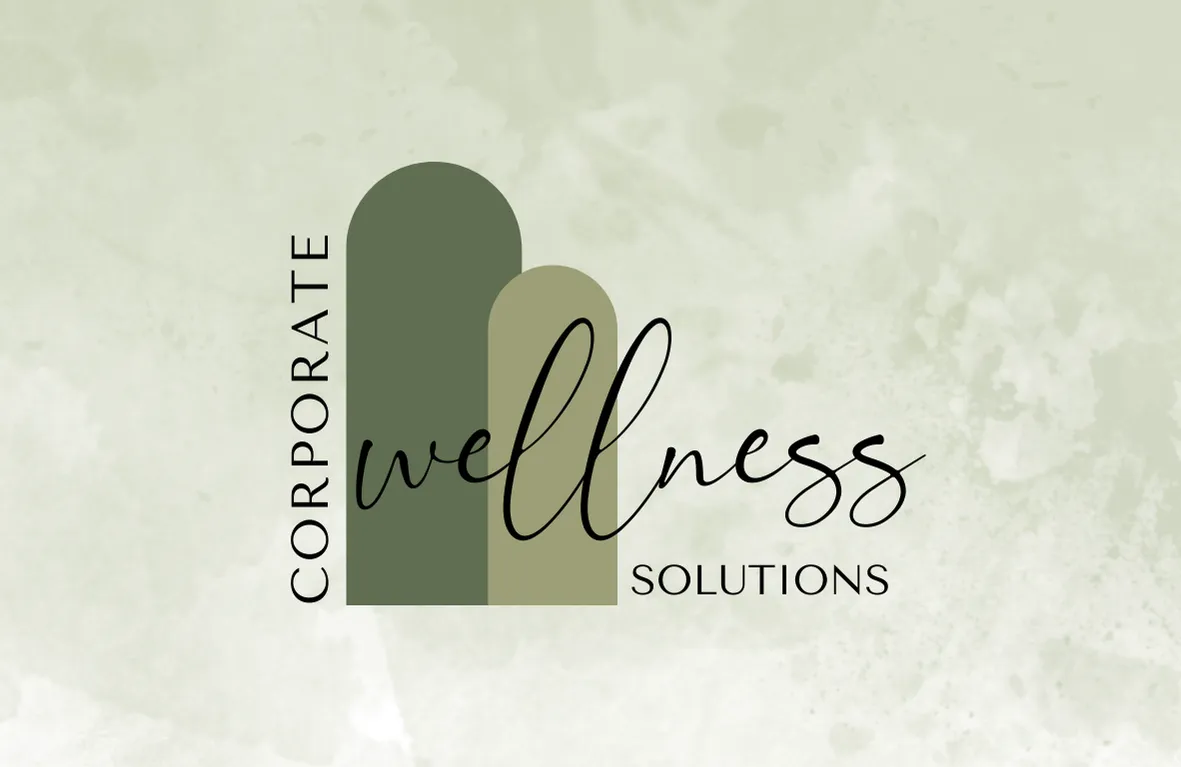Employer -Menopause friendly workplaces
Get Accredited
Welcome to the
Women’s Wellness Hub

How to make work menopause-friendly: don't think of it as a problem to be managed
For many, menopause conjures up feelings of embarrassment, hot flushes, mood swings and sleep disturbance. It doesn’t usually conjure up thoughts about the workplace.
Stressful work environments can exacerbate menopausal symptoms. Women who enjoy higher levels of support, on the other hand, report lower levels of menopausal symptoms.
Some employers think menopause hurts productivity and is therefore a reason to avoid employing older women. But not every woman experiences menopausal transition the same way and it is wrong to assume it will always have a negative impact on wor
More and more Australian women are facing a silent career killer. It can increase their dissatisfaction with work, their absenteeism and their intention to quit their jobs. Menopause is one of the last great taboo subjects in the workplace but its impacts are great – and it’s time we talked about it.
Menopause typically occurs in women around 51 years of age. Prior to this women also pass through a period of peri-menopause where symptoms are apparent. These include fatigue, hot flushes, sleep disruption, irregular and unpredictable bleeding, urinary issues and mood swings. In all, menopausal symptoms generally last from four to eight years.
This directly relates to the workforce in Australia because the participation of women over 45 years of age is steadily increasing, particularly in the 55-64 age group. Between 1999 and 2012, this group’s workforce participation rate grew by a staggering 23%
.
What do we know about menopause and work?
A large study of women over 40 working at Australian universities was conducted in 2013-14. It’s one of the few to examine this issue locally.
This research showed that menopause did not necessarily affect job performance. But there was a strong link between the severity of symptoms and reduced engagement and satisfaction with work – as well as a higher intention to quit work.
Unsurprisingly, these reactions can have negative impacts on career aspirations. A 2013 report, Older Women Matter: Harnessing the talents of Australia’s older female workforce, examined the issue of attracting and retaining older women in Australian workplaces. While not directly about menopause, this report argued that employers could reap significant benefits by examining their strategies and policies for employees in this demographic.
Studies overseas, particularly in the UK, have more comprehensively explored the link between workplace performance and menopause. It is generally agreed that women are often able to conceal their symptoms and manage their workloads. Yet they often do so at their own personal expense.
One study found that only a quarter of respondents felt comfortable enough to discuss their menopausal symptoms with their line managers. Most believed it was a personal and private matter. Other reasons for non-disclosure included the belief that it had no impact on their work, and their manager being male and being embarrassed.
The consensus then is that this important group of employees need support so that menopausal symptoms can be discussed and managed. That in turn means employees can be retained and developed. But how do employers make this happen?
Cultural influences
Features of the workplace culture and managerial styles stressful work environments can exacerbate menopausal symptoms. Women who enjoy higher levels of support, on the other hand, report lower levels of menopausal symptoms.
For some women menopause will present significant and long-term health episodes and may be covered under disability discrimination employment laws. It is also important to note that any medical information provided by a staff member is likely deemed sensitive information under the Privacy Act.
For other women, menopause was just seen as part of a broader “time of life” when many women feel energised, more free from caring responsibilities and ready to go in terms of their career.
Practical steps
There are a number of practical steps employers can take to create menopause-friendly workplaces:
Fans and easy access to temperature control were a common recommendation from our research.
Ability to work flexibly or from home during extreme weather or times when they were experiencing symptoms such as excessive bleeding or migraines.
Culturally supportive so women feel like they can reach out for support when needed.
Information ;provided about menopause – for both men and women – should be part of organisational health and wellness agendas. Book in well trained menopause trainers through Corporate Wellness Solutions. www.corporatewellnesssolutions.com.au
Cultural shifts
A shift in social attitudes can make menopause a positive experience,
Managerial systems should put menopause on the workplace agenda rather than considering it only when it becomes an “issue” or “problem”. Including menopause in occupational health and safety and human resource policies can also challenge hidden biases.
Finally, line management training is vital. All too often how menopause is dealt with in the workplace comes down to a supervisor’s personal experience and understanding. When managerial responses remain ad hoc and unpredictable, it is not surprising that 60% of women feel unable to discuss their menopausal symptoms with their line manager.
Don’t manage menopause
These steps are not just about alleviating symptoms. They are about avoiding signalling that women of a certain age are an inconvenience or less valued as employees.
So want to know the best way to support menopause in the workplace?
Provide ways to start the conversation in a positive way.
Encourage open and honest communication that does not automatically lead to discussion of performance.
Think about proactive practical steps that can accommodate symptoms.
It is about enabling a positive and productive work environment for those going through menopause, not “managing” menopause and its symptoms as a problem.
Get help to become a Menopause Accredited Business
Corporate Wellness Solutions is one of the leading Australian wellness organisations equipped to help businesses ensure better support for their staff experiencing perimenopause or menopause. They provide practical and expert training and resources to businesses to provide support to staff
experiencing menopausal symptoms at work and help managers and HR professionals to understand how they can provide the right support to their workforce. They help workplaces create an environment where everyone enjoys equal opportunity to achieve their best at work regardless of age, gender, or experience of menopause. Corporate Wellness Solutions compliance team also ensure compliance obligations are met and works with business to attain menopause friendly accreditation, which has enormous value on culture, staff retention, staff productivity and morale.
Book a menopause wellness education session through highly skilled trainers - www.corporatewellnesssolutions.com.au
GET YOUR BUSINESS MENOPAUSE ACCREDITED NOW.


Women's Wellness Hub Directory
Physical and Emotional Health & Wellness
Social Wellness
Financial, Legal and Safety wellness
Women's Wellness Blog

Am I eligible for Legal Aid?
Am I eligble for financial support through Legal Aid?
If you need a lawyer for ongoing legal help or to represent you in court and you don’t have enough money to pay, you may be able to get legal assistance from Legal Aid. Legal Aid is the Australian organisation that delivers a variety of legal services to disadvantaged people across your relevant state/territory. Unfortunately, they do not have the resources to help everyone with a legal problem and therefore can only assist if your case falls within their strict guidelines. The main ways they decide if you can access this legal help are as follows:
1. They look at your financial situation
a) They will do a ‘means test’ which will look at the amount of your total income (Centrelink payments including Family Tax Benefit A, Family Tax Benefit B etc. child support payment, child maintenance payments, spousal maintenance payments, what you earn including any investments, any insurance policy claims for example accident, sickness or disability benefits) and total assets (equity in your home, money in the bank etc);
b) They will consider any support or financial help you provide to other people, for example a partner or child/ren;
c) They will also look at the assets and income of any other person who provides you with regular financial support, for example gives you money, helps pay your bills, or shares your living expenses ( for example a relative, friend, spouse, former partner etc).
PLEASE NOTE: The MEANS TEST (the amount and assets/income you can earn to be eligible) is different for each state/territory.
They will also look at the ‘merit’ of your case
This means, what is the prospect/chances of your matter being successful if it went to court?
To decide this, Legal Aid looks at the legal situation and the facts of your case to decide if it is likely to succeed or fail if it goes to court – they consider - would a sensible person risk their money to take the particular case to court?
They might also look at your special circumstances
There are sometimes applicants who may not succeed with the ‘means test’ requirements but they deserve special consideration because they experience multiple disadvantages. This may mean you get some assistance with legal costs.
If you are experiencing, for example:
domestic violence,
live in a remote area,
have an intellectual, psychiatric or physical disability.
or other disadvantage,
you may be eligible for a grant of aid via Legal Aid’s special circumstances guidelines.
What to do next?
We highly recommend you do the following if you think you may be eligible:
Have a look at the Legal Aid Application form relevant to your particular state or territory to see what information they would require you to provide. There are a significant number of documents you need to submit with your application to prove your financial situation.
PLEASE NOTE: The Application Form and terms are different for each state/territory.
Write down notes on why you think you might be eligible or any other questions you have about applying for Legal Aid.
Ring your own state Legal Aid office for a free consultation to discuss whether you are eligible for Legal Aid and what to do next.
Ask Legal Aid how you can get help, if needed, to fill in the application form and to submit it.
NOTE: An interpreter can be arranged. Arrangements can be made to assist you with an accredited interpreter or National Relay Service for the hearing impaired.
The Application Form
The Application form must only be submitted in the approved form for your own state or territory.
NOTE: Each state/territory has a slightly different application form!
A copy of the Application Form is available by:
* The Legal Aid website – check it is the Legal Aid website for your state/territory (you can download the application from the documents sections).
*Collect the application form in person by going into any of the Legal Aid offices in your state/territory.
* Call them and ask for one to be mailed to you.
*Email your Legal Aid office and provide your name and address and ask one to be mailed to you or your PO Box.
If you qualify for Legal Aid
If you qualify (your application is approved), Legal Aid will get a lawyer to represent you under a grant of legal aid for your matter. They can speak for you in court, help you prepare legal documents related to your case and help you reach agreement with the other party.
This site is brought to you by Family Counselling Support Network
Book in directly with one of our professionals today

We are here to help

We are committed to protecting your personal information and respecting your privacy. This website uses cookies to analyze website traffic and optimise your website experience. By accepting our use of cookies, your data will be aggregated with all other user data.
DISCLAIMER: The material contained on this website is for general educational and information purposes only and is not a substitute for professional legal, financial, medical or psychological advice or care. While every care has been taken in the information provided, no legal responsibility or liability is accepted, warranted or implied by the authors or Family Counselling Support Network and any liability is hereby expressly disclaimed. For specific advice please contact us at [email protected]. All information contained on the website remains the intellectual property of Family Counselling Support Network and is for your personal educational use only. The information must not be reproduced or distributed without the express permission of Family Counselling Support Network.
Family Counselling Support Network acknowledges and respects the First Nations Custodians of the land where our offices stand, and where we work to help Australians. We pay respects to their Elders, past present and emerging, lore, customs and creation spirits. We recognise that these lands have always been places of ceremony, teaching, research and learning, and we acknowledge the important role Aboriginal and Torres Strait Islander peoples play in our community.
We are committed to providing an inclusive and accessible environment where people and communities of all identities and backgrounds are accepted, safe and celebrated.
Privacy Policy | Terms and Conditions





















